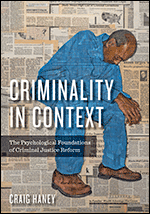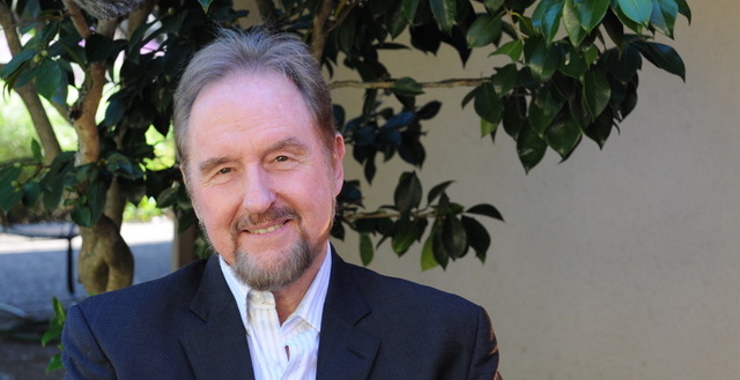Criminality in Context:
The Psychological Foundations of Criminal Justice Reform
By Craig Haney, PhD
Book Signing TBA
Criminality in Context: The Psychological Foundations of Criminal Justice Reform
 Instead of punitive, oppressive, and racist social control, the author
vividly delineates a model of compassionate, innovative, and progressive
reforms that will transform the current “politically” driven,
chaotic system into an effective criminal justice model. Including policing,
the judicial system, and the penal system in the realm of criminal justice reform,
Criminality in Context is a wonderful read for all people vested in better understanding the
intersections among crime, legal and penal policy, and the criminal justice
system as a whole.
Instead of punitive, oppressive, and racist social control, the author
vividly delineates a model of compassionate, innovative, and progressive
reforms that will transform the current “politically” driven,
chaotic system into an effective criminal justice model. Including policing,
the judicial system, and the penal system in the realm of criminal justice reform,
Criminality in Context is a wonderful read for all people vested in better understanding the
intersections among crime, legal and penal policy, and the criminal justice
system as a whole.
—Choice
In this groundbreaking book that is built on decades of work on the front
lines of the criminal justice system, expert psychologist Craig Haney
encourages meaningful and lasting reform by changing the public narrative
about who commits crime and why.
Based on his comprehensive review and analysis of the research, Haney offers
a carefully framed and psychologically based blueprint for making the
criminal justice system fairer, with strategies to reduce crime through
proactive prevention instead of reactive punishment.
Haney meticulously reviews evidence documenting the ways in which a person’s
social history, institutional experiences, and present circumstances powerfully
shape their life, with a special focus on the role of social, economic,
and racial injustice in crime causation. Haney debunks the “crime
master narrative” — the widespread myth that criminality is
a product of free and autonomous “bad” choices — an
increasingly anachronistic view that cannot bear the weight of contemporary
psychological data and theory.
This is a must-read for understanding what truly influences criminal behavior,
and the strategies for prevention and rehabilitation that follow.

Author Bio:
Since his early work on the Stanford Prison Experiment,
Craig Haney has become one of the nation’s most highly regarded scholars whose
research, writing, and testimony have helped to transform the criminal
justice system.
He served on a National Academy of Sciences committee studying mass incarceration,
and his front-line observations and analyses have been cited by the United
States Supreme Court.
He has seen firsthand how social and economic injustice operate to produce
crime in our society and how often the criminal justice system acts to
worsen rather than alleviate these problems.
He lives in Santa Cruz, California.